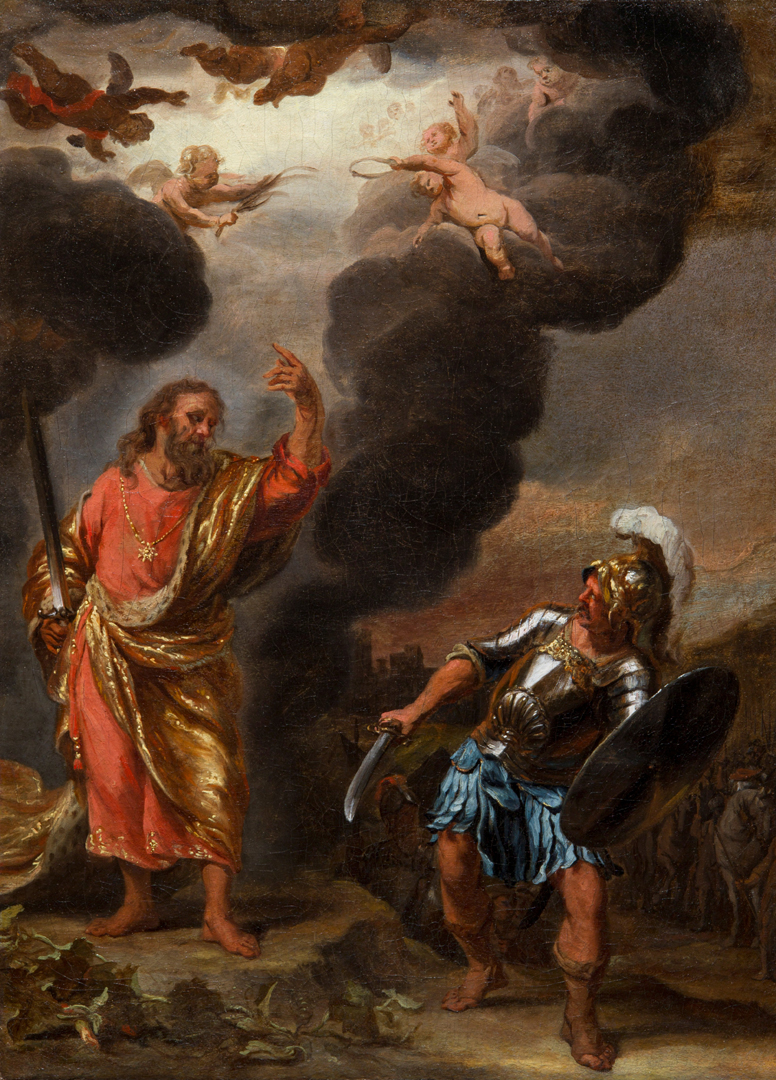The Captain of the Lord's Army Appears to Joshua by Ferdinand Bol, Joshua 5:13-15, Bible.Gallery
Artwork Description

This painting depicts a significant passage from the Old Testament (Joshua 5:13-15), showcasing Joshua, the appointed leader of the Israelites after Moses' passing, as he stands before the fortified city of Jericho. In the background, Joshua's troops can be seen, while in the foreground, he encounters an enigmatic figure. The artist skillfully captures the moment of surprise on Joshua's face and his humble posture as he stands on sacred ground, unaware that the stranger is the captain of God's army. In this oil sketch, created by the Amsterdam artist Ferdinand Bol, the scene serves as part of a larger decorative program commissioned by Jacoba Lampsins. The finished series of paintings, a unique blend of biblical and mythological themes, reflects Lampsins's aspiration to elevate her sons into Utrecht's patriciate. The story of Joshua and the captain of God's army becomes symbolic of her stance on the contentious use of ecclesiastical benefices by the city's government members. Bol, who had studied under Rembrandt van Rijn, embraced a different style around 1650, but this painting reveals that he never entirely abandoned the lessons learned from his master, skillfully presenting an Old Testament subject with a moment of divine revelation. Moreover, this work stands as an extraordinary example of female patronage in the Dutch Republic and serves as a fascinating reference to the social debates that shaped 17th-century art.